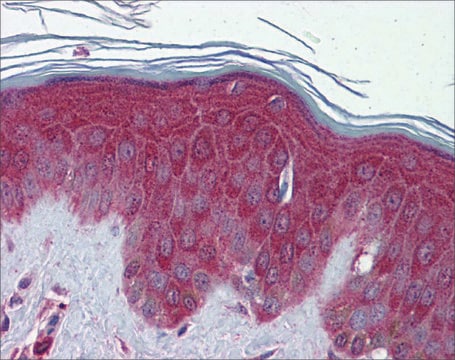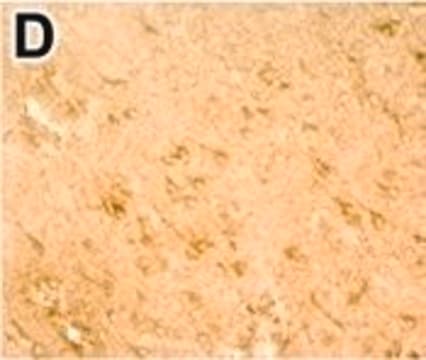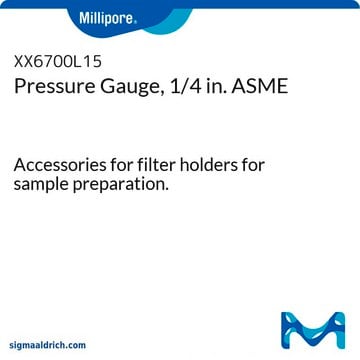ABS1036
Anti-FMO3 Antibody
serum, from rabbit
Szinonimák:
Dimethylaniline monooxygenase [N-oxide-forming] 3, Dimethylaniline oxidase 3, FMO form 2, FMO 3, FMO II, Hepatic flavin-containing monooxygenase 3, Trimethylamine monooxygenase
About This Item
WB
western blot: suitable
Javasolt termékek
biológiai forrás
rabbit
Minőségi szint
antitest forma
serum
antitest terméktípus
primary antibodies
klón
polyclonal
faj reaktivitás
human
faj reaktivitás (homológia által előrejelzett)
chimpanzee (based on 100% sequence homology)
technika/technikák
immunohistochemistry: suitable
western blot: suitable
NCBI elérési szám
UniProt elérési szám
kiszállítva
dry ice
célzott transzláció utáni módosítás
unmodified
Géninformáció
human ... FMO3(2328)
Általános leírás
Immunogén
Alkalmazás
Signaling
Toxicology & Drug Resistance
Minőség
Western Blotting Analysis: A 1:500 dilution of this antibody detected FMO3 in 10 µg of human liver microsomal tissue lysate.
Cél megnevezése
Fizikai forma
Tárolás és stabilitás
Handling Recommendations: Upon receipt and prior to removing the cap, centrifuge the vial and gently mix the solution. Aliquot into microcentrifuge tubes and store at -20°C. Avoid repeated freeze/thaw cycles, which may damage IgG and affect product performance.
Egyéb megjegyzések
Jogi nyilatkozat
Nem találja a megfelelő terméket?
Próbálja ki a Termékválasztó eszköz. eszközt
Tárolási osztály kódja
12 - Non Combustible Liquids
WGK
WGK 1
Lobbanási pont (F)
Not applicable
Lobbanási pont (C)
Not applicable
Analitikai tanúsítványok (COA)
Analitikai tanúsítványok (COA) keresése a termék sarzs-/tételszámának megadásával. A sarzs- és tételszámok a termék címkéjén találhatók, a „Lot” vagy „Batch” szavak után.
Már rendelkezik ezzel a termékkel?
Az Ön által nemrégiben megvásárolt termékekre vonatkozó dokumentumokat a Dokumentumtárban találja.
Tudóscsoportunk valamennyi kutatási területen rendelkezik tapasztalattal, beleértve az élettudományt, az anyagtudományt, a kémiai szintézist, a kromatográfiát, az analitikát és még sok más területet.
Lépjen kapcsolatba a szaktanácsadással








